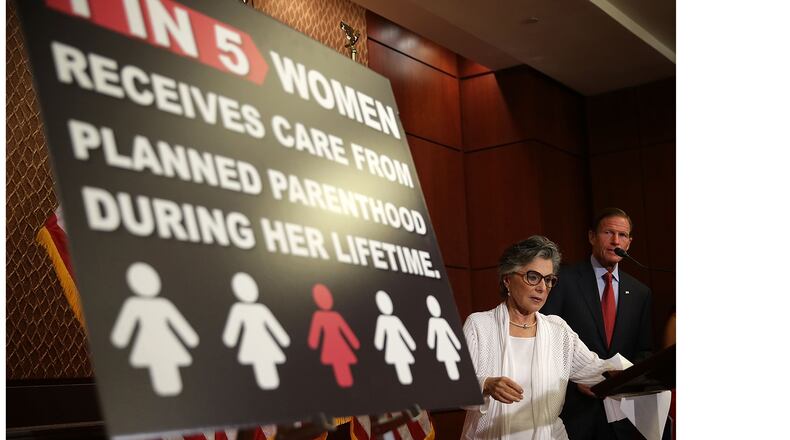In recent weeks, members of Congress have called for barring Planned Parenthood from receiving federal funds for women’s health services. Several Southern states have already takes steps to eliminate public funding for the organization’s clinics.
Last week, Alabama Gov. Robert Bentley issued a notice that within 15 days, the state would terminate its contract with Planned Parenthood Southeast, which also operates clinics in Georgia and Mississippi, to provide contraception and reproductive health screenings through a Medicaid family planning waiver. Gov. Bobby Jindal took similar action, terminating Planned Parenthood Gulf Coast clinics’ Medicaid contract in Louisiana.
If successful, these efforts will deny women access to contraception and essential screening for cervical and breast cancer and testing for sexually transmitted infections (STIs) from experienced health care providers. They also have the potential to worsen the already poor reproductive health outcomes for women in the South.
Alabama, Georgia, Louisiana and Mississippi have some of the highest rates of unintended pregnancy in the United States. The incidence of STIs, such as gonorrhea and chlamydia, among 15 to 24 year olds also is considerably higher than the national average. More than 20 percent of uninsured women in these states have not been screened for cervical cancer in the last five years. These states also rank among the worst in the nation for infant and maternal mortality and preterm delivery.
Many women in the four states already lack access to preventive and primary care services due to provider shortages. Therefore, measures to exclude Planned Parenthood from publicly funded programs at the state and national level will make it more difficult for women to obtain necessary health care. Based on my research at the Texas Policy Evaluation Project, it is not guaranteed former Planned Parenthood clients would be able to obtain reproductive health care from other providers.
For the last four years, my colleagues and I have examined the impact of Texas’ broad policies to defund Planned Parenthood clinics through drastic budget cuts and exclusion from federally funded programs. We found that after the legislation went into effect, it was more difficult for women to access affordable, routine reproductive health care and highly effective contraception needed to prevent unintended pregnancy.
Federally qualified health centers and public health departments were not always able to fill the gaps in many communities. They were not interested in taking on the challenge of administering family planning programs or accepting the programs’ low reimbursement for services. Others lacked clinical staff with necessary experience in women’s health care, such as training to insert IUDs (one of the most effective forms of contraception) and offering evidence-based approaches for STI and cancer screening and contraceptive provision.
Even if women are able to find a new provider, they may have long waits to get an appointment, need to make multiple visits, or unnecessarily repeat exams before they can start or renew their contraceptive method or obtain other follow-up care. This is problematic because family planning services are time-sensitive, and delays can lead to unintended pregnancy and disease transmission. Additionally, many women who need these services are low-income or uninsured and lack the resources to cover the additional co-payments that may be required at a new source of care.
State and national policymakers focused on defunding Planned Parenthood are targeting programs that do not fund abortion — directly or indirectly. This is not an approach that will reduce unintended pregnancy. Nor is it one that will improve the many other health problems women in the South face.
These health disparities need to be addressed, but this can be done only by increasing funding for contraception, STI testing and treatment, cancer screening and related services — and ensuring women have access to experienced providers offering evidence-based medical care.
Kari White is assistant professor in Health Care Organization and Policy at the School of Public Health, University of Alabama at Birmingham.
About the Author
Keep Reading
The Latest
Featured


